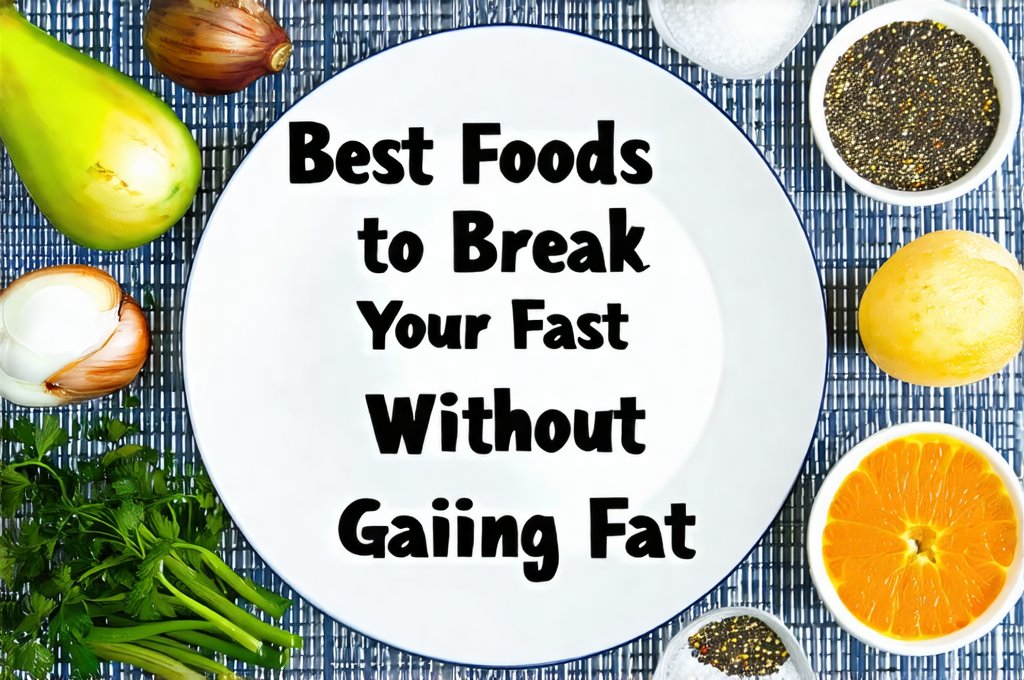Intermittent fasting has surged in popularity as a lifestyle choice for many seeking weight management, improved metabolic health, and even enhanced cognitive function. But achieving these benefits isn’t solely about when you eat; it’s also profoundly influenced by what you consume when breaking your fast. A poorly chosen first meal can negate much of the positive work your fasting period accomplished, potentially leading to digestive discomfort, energy crashes, or even hindering fat loss goals. This article explores the best food choices to gently and effectively break your fast without sabotaging your progress, focusing on nutrient density and mindful refeeding strategies.
The key is understanding that after a period of abstaining from food, your body is in a sensitive state. It has been utilizing stored energy, and suddenly introducing a large or complex meal can overwhelm the digestive system and spike blood sugar levels. This often leads to insulin resistance over time and diminishes the metabolic advantages gained during fasting. We’ll delve into foods that prioritize easy digestion, stable blood sugar, and sustained energy – options designed to rebuild glycogen stores without triggering unwanted fat storage. The goal isn’t restriction; it’s about making informed choices that support your overall health and well-being within a fasting lifestyle.
Refeeding Strategies: Gentle is Key
Breaking a fast isn’t about immediately diving into a large, calorie-dense meal. It’s about gradually reintroducing food to avoid digestive distress and maintain metabolic stability. Think of it as waking up your system slowly rather than jolting it awake. Gradual refeeding allows the body to adapt and efficiently utilize the nutrients you’re providing. A common mistake is overestimating what the body needs after a fast; often, less is more, at least initially.
The first meal should be relatively small and easy to digest. Focus on foods that are readily absorbed and don’t require significant processing by the digestive system. This minimizes strain on your gut and helps prevent bloating or discomfort. Consider starting with something as simple as bone broth, a handful of berries, or a small portion of cooked vegetables. These options provide essential nutrients without causing a rapid spike in blood sugar. Remember that hydration is also crucial when breaking a fast; reintroduce fluids alongside food to aid digestion and support overall health.
Avoid heavily processed foods, sugary drinks, and large amounts of fat immediately after fasting. These can overwhelm your system and counteract the benefits you’ve worked hard to achieve during your fasting period. Instead, prioritize whole, unprocessed foods that nourish your body and promote long-term well-being. This approach sets the stage for sustained energy levels and prevents cravings later in the day.
Optimal Food Choices for Breaking Your Fast
When selecting foods to break your fast, think about nutrient density and digestibility. Prioritize protein – it helps stabilize blood sugar and supports muscle recovery. Healthy fats are also important, but keep portions moderate initially. Complex carbohydrates, like those found in sweet potatoes or quinoa, can replenish glycogen stores without causing a significant insulin spike, especially when paired with protein and fat.
Here are some excellent choices:
- Eggs (especially with avocado)
- Greek yogurt with berries
- Oatmeal with nuts and seeds
- Bone broth
- Salmon with steamed vegetables
- Chicken breast with sweet potato
- Small portion of fruit (berries, apple slices) combined with a source of protein or fat.
These options provide a balance of macronutrients and micronutrients that support optimal health and well-being. Remember to listen to your body and adjust portion sizes based on your individual needs and tolerance. Don’t be afraid to start very small if you’re new to fasting, and gradually increase portions as your digestive system adapts.
The Role of Protein in Refeeding
Protein is arguably the most important macronutrient when breaking a fast. During fasting, the body may begin to break down muscle tissue for energy – a process we want to minimize. Consuming protein immediately after your fast helps halt muscle breakdown and begins the rebuilding process. It also has a higher thermic effect than carbohydrates or fats, meaning your body burns more calories digesting it.
Furthermore, protein slows down glucose absorption, preventing rapid blood sugar spikes. This is crucial for maintaining insulin sensitivity and avoiding cravings. Aim to include at least 20-30 grams of high-quality protein in your first meal. Examples include eggs, Greek yogurt, poultry, fish, or a plant-based protein source like tofu. Combining protein with healthy fats further enhances its benefits by promoting satiety and stabilizing blood sugar levels.
Hydration & Electrolyte Balance
Often overlooked is the importance of rehydration and electrolyte replenishment after a fast. During fasting, you lose water and electrolytes through normal bodily functions like breathing and sweating. Replenishing these lost fluids is essential for optimal health and performance. Dehydration can lead to fatigue, headaches, and impaired cognitive function.
Consider adding a pinch of sea salt or Himalayan pink salt to your first meal or drinking electrolyte-rich beverages like coconut water. This helps restore sodium, potassium, and magnesium levels. Staying adequately hydrated also supports digestion and nutrient absorption. Water should be your primary beverage throughout the day, but herbal teas can also be beneficial for their calming and hydrating properties.
Avoiding Common Mistakes
Many people inadvertently sabotage their fasting efforts by making common mistakes when breaking their fast. One of the biggest is overeating – believing that after a period of restriction, they need to “make up” for lost calories. This leads to digestive discomfort and negates the metabolic benefits of fasting. Another mistake is consuming highly processed foods or sugary drinks, which cause rapid blood sugar spikes and inflammation.
Avoid large amounts of refined carbohydrates (white bread, pastries), excessive fat (fried foods), and artificial sweeteners. Instead, focus on whole, unprocessed foods that nourish your body and support long-term health. Finally, listen to your body’s signals – if you feel full or uncomfortable, stop eating. Don’t force yourself to finish a meal just because it’s there. Mindful eating is key to success with intermittent fasting.




